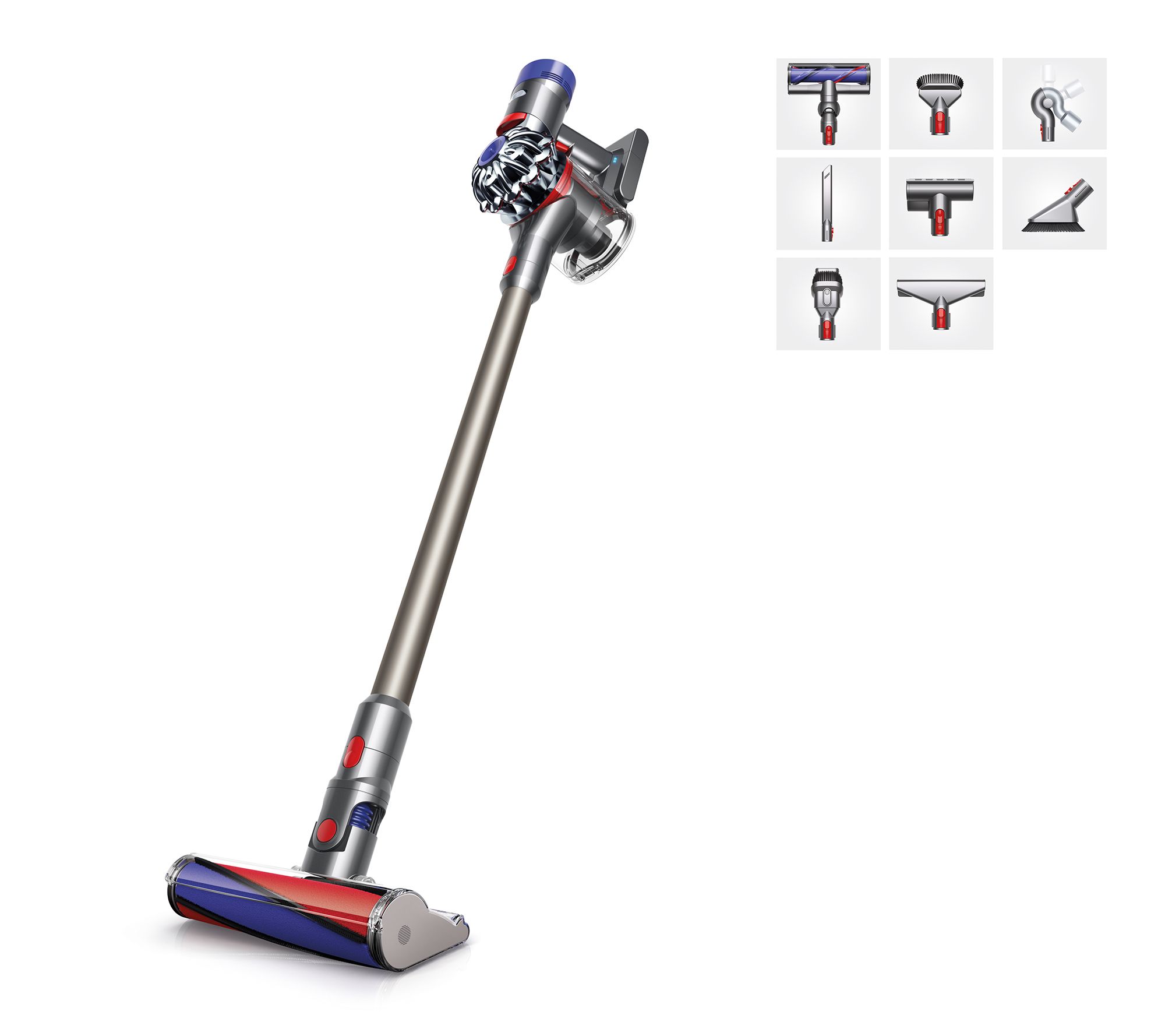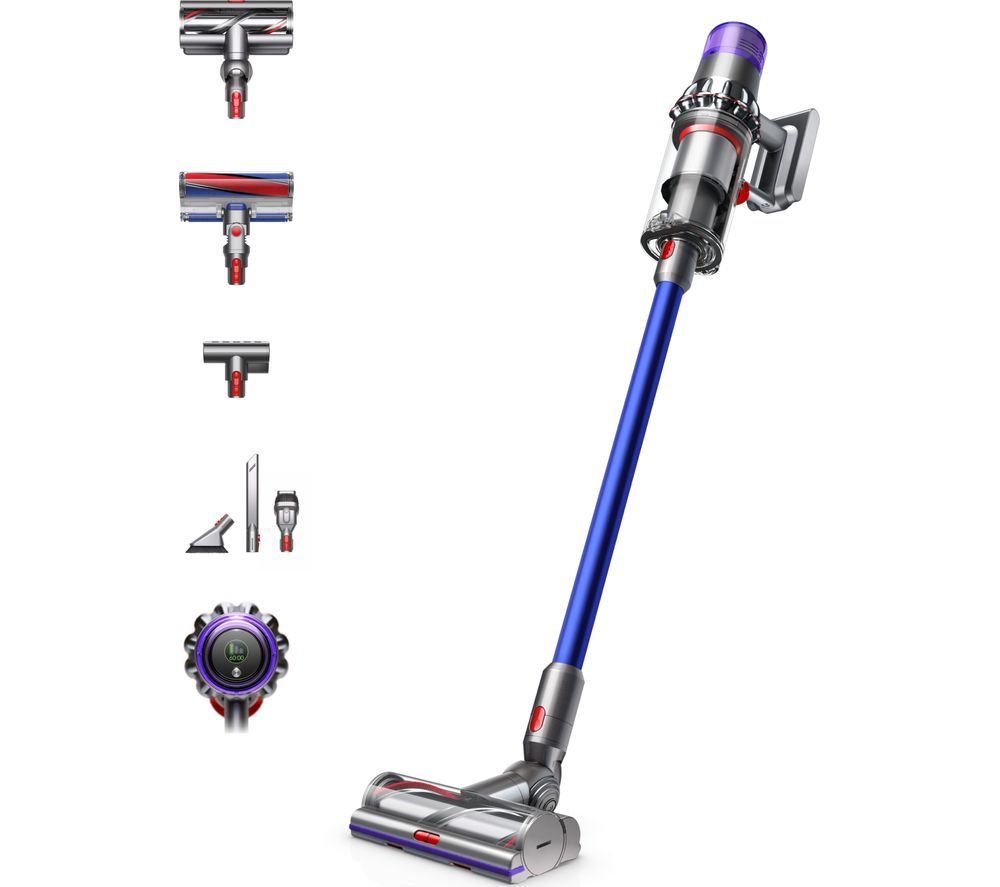Shps 2/19 Dyson V8 Absolute Pro Cordless Vacuum with 8 Tool Attachments
Includes V8 Absolute Pro cordless vacuum, docking station, charging cable, direct drive cleaner head, soft roller cleaner head, combination tool, mini motorized tool, mini soft dusting brush, crevice tool, stubborn dirt brush, up-top adapter, and mattress tool.
Are you the MVP of your home? Of course you are…you’re an absolute pro at caring for your family and home! Similar to other pros, you need equipment that helps you perform your best — like the Dyson V8 Absolute Pro cordless vacuum.
This untethered titan steps up to the plate confidently, offering two working modes: powerful suction mode (think consistent performance) and MAX mode (swinging for the fences!).
Like a glove, the ergonomically designed handle is made to fit your hand and provide comfortable use. What’s more, this lightweight unit transforms into a handheld vac in one single motion. Use it to chase down crumbs, dust, and dirt all over your home…even under furniture.
Eight attachments are included to make this “player” even more versatile. The mini motorized tool is ideal for steps, the crevice tool conquers tight spaces with ease, and the soft roller head picks up tiny particles.
So recruit this Absolute Pro for your home’s team of tools: it could just be the best play you’ve made so far this year. From Dyson.
- Includes V8 Absolute Pro cordless vacuum, docking station, charging cable, direct drive cleaner head, soft roller cleaner head, combination tool, mini motorized tool, mini soft dusting brush, crevice tool, stubborn dirt brush, up-top adapter, and mattress tool
- The Dyson V8 has two modes: Powerful Suction Mode and Max Mode; in Powerful Suction Mode, you get up to 40 minutes of run time when using non-motorized tools
- Quickly transforms to handheld vacuum and back in a single action
- Advanced whole-machine filtration
- Washable filter
- Dyson V8 Dirt Ejector drives out dust and debris in one action; there is no need to touch the dirt
- Measures approximately 49″L x 8.8″W x 9.8″H, weighs 5.75 lbs
- ETL listed adapter; 2-year Limited Manufacturer’s Warranty
- Imported





by Chris
I was hesitant to buy this but I am so happy I did! My floors have never been so clean!
by Celo
I love my Dyson. The reviews had me a bit apprehensive but so far so good. You have every attachment you need with this product. Does a great job on my high pile area rug and is extremely good with suction. I don’t know how I lived without one for so long. Let’s hope it lasts.
by Arezee
The power this stick vacuum has is incredible. We’ve been using it daily – with three longhaired Dachshunds, that’s a must – and it works like a champ! We seldom take it out of the lower power setting and it does run the full 40 minutes if fully charged.
As with any vacuum, maintenance is the key. We check the attachments for trapped debris every time we change from the carpet attachment to the one for hard floors.
I particularly love that you can use it as a hand held vacuum for cleaning out cars and for getting dog hair off the furniture.
We will never be without a Dyson stick vacuum from now on.
by Melissa
I like it! I was definately thankful to have it during our power outage! The suction is great. My only complaint is I don’t like the fact that you have to hold the power trigger to keep it on otherwise it would of been 5 stars from me.